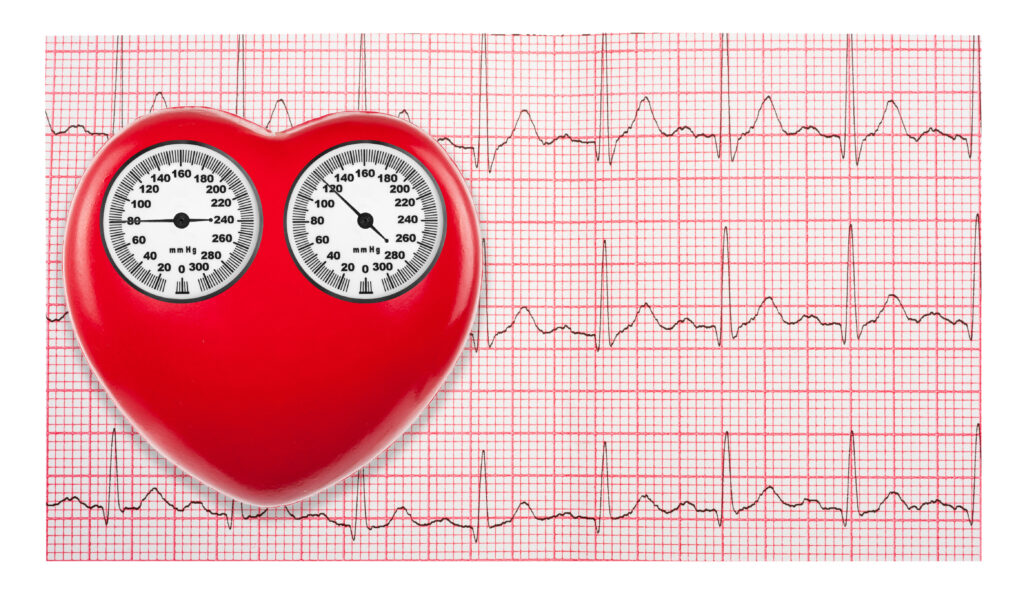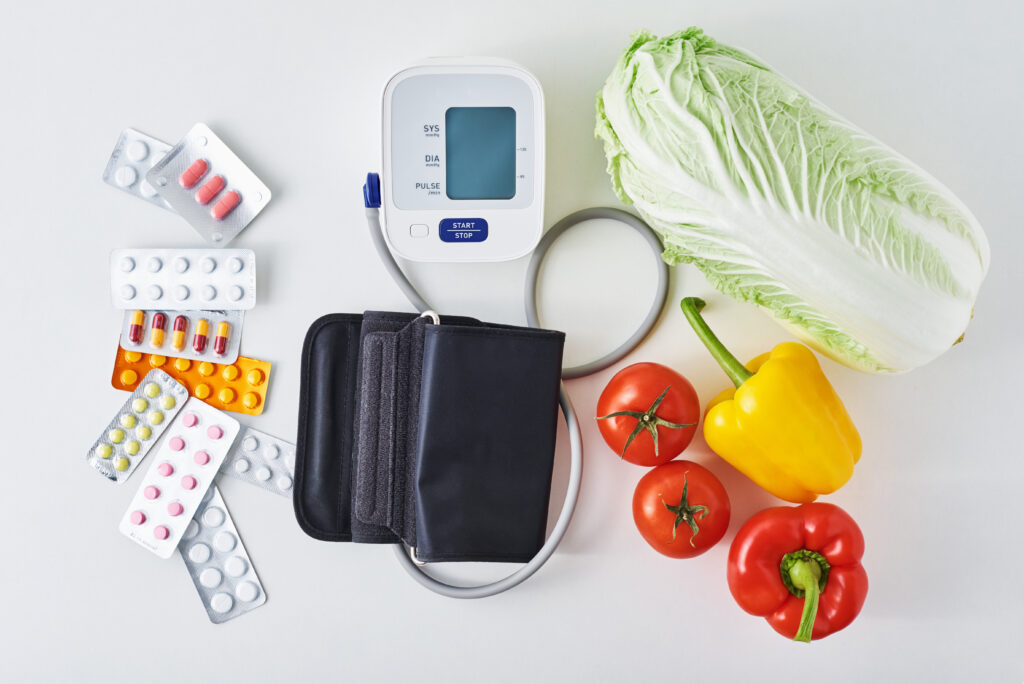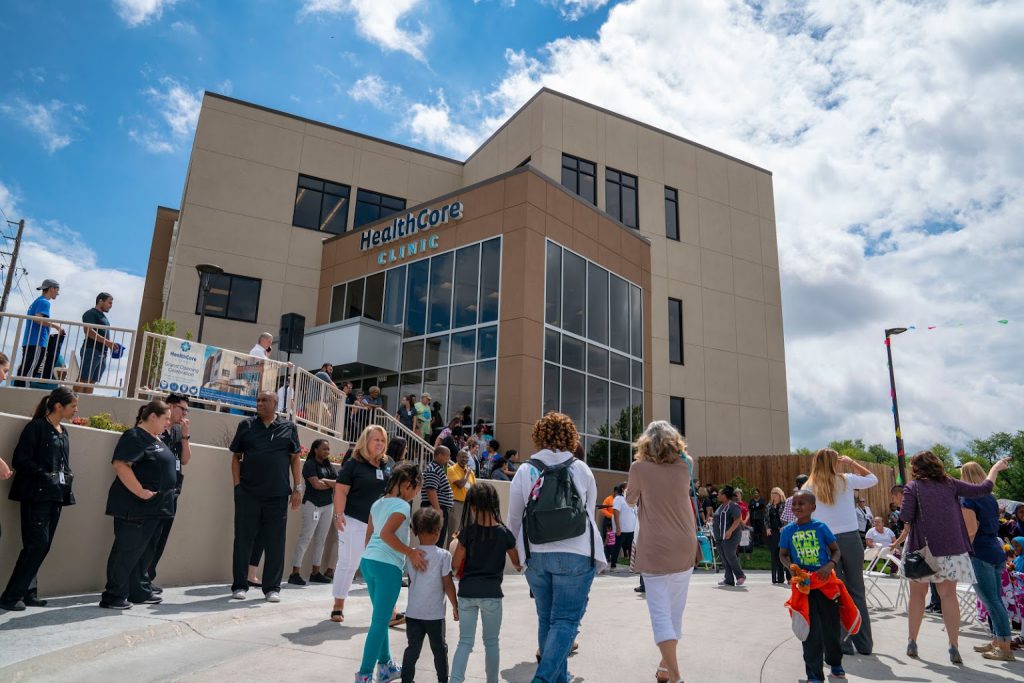Tips and Managing and Lowering High Blood Pressure
Dec 23, 2022
High blood pressure (HBP or hypertension) is a common medical condition when your blood pressure, which is a health term for the force of your blood pushing against the walls of your blood vessels, is consistently too high. If you have high blood pressure, it means that your heart is working too hard to pump blood around your body and you need to take action.
Adult women are more likely to suffer from high blood pressure than men. It is estimated that one in every three American women will suffer from high blood pressure at some point in her life. Hypertension is a national health issue that can affect your future. If you have high blood pressure when you’re pregnant, it’s called pregnancy-induced hypertension (PIH) or gestational hypertension.
You might be wondering what is normal blood pressure and how do I address this problem? A blood pressure reading is written like this: 120/80. It’s read as “120 over 80.” The top number is called the systolic, and the bottom number is called the diastolic. The ranges are:
- Normal: Less than 120 over 80 (120/80)
- Elevated: 120-129/less than 80
- Stage 1 high blood pressure: 130-139/80-89
- Stage 2 high blood pressure: 140 and above/90 and above
- Hypertension crisis: higher than 180/higher than 120 — See a doctor right away
If your blood pressure is above the normal range, talk to your doctor about how to lower it for the future.
Common Causes of High Blood Pressure
HBP Causes
High blood pressure (HBP) tends to run in families and is more likely to affect men than women. If you have a family history of high blood pressure and/or hypertension in your family, you are more at risk to develop HPB in your lifetime.
Weight, obesity, diet, inactivity, salt intake, and other unhealthy behaviors are linked to HPB, heart conditions, and vascular conditions. A diet of excessive fat consumption and inactivity can cause one to become obese and develop prehypertension and other HBP conditions, which may not present themselves as chest pain or other noticeable symptoms initially.
Age and race also play a role. In the United States, black or African American people are twice as likely as white or Caucasian people to have high blood pressure, although the gap begins to narrow around age 44. After age 65, black women have the highest incidence of high blood pressure. it is estimated that one in every three American women will suffer from high blood pressure at some point in her life.
While the exact causes of high blood pressure are not known, several things may play a role, including:
- Smoking
- Being overweight or obese
- Lack of physical activity
- Too much salt in the diet
- Too much alcohol consumption (more than 1 to 2 drinks per day)
- Stress
- Older age
- Genetics
- Family history of high blood pressure
- Chronic kidney disease
- Adrenal and thyroid disorders
- Sleep apnea
In as many as 95% of high blood pressure cases in the U.S., the underlying cause can’t be found. This type of high blood pressure is called “essential hypertension.” Though essential hypertension remains somewhat mysterious, it has been linked to certain risk factors.
The Risks of High Blood Pressure and Hypertension
High Blood Pressure Risks
In most cases, damage done from high blood pressure (HBP or hypertension) occurs over time. Left undetected or uncontrolled, chronic high blood pressure can lead to heart disease, diabetes, kidney damage, and other cardiovascular conditions such as…
- Heart Attack — High blood pressure causes damage to your heart’s main artery or arteries that can become blocked and prevent blood flow to the heart muscle. This can lead to a heart attack.
- Stroke — High blood pressure can cause blood vessels that supply blood and oxygen to the brain to become blocked or burst. This condition is called a stroke.
- Heart Failure — The increased workload from high blood pressure can cause the heart to enlarge and fail to supply blood to the body.
- Kidney Disease or Kidney Failure — High blood pressure can damage the arteries around the kidney and interfere with their ability to filter blood effectively. Kidney failure can cause profound damage to your body and effect other health factors.
- Vision Loss — High blood pressure can strain or damage blood vessels in the eyes. This condition can lead to the loss of your vision.
- Sexual Dysfunction — High blood pressure is a factor that can lead to erectile dysfunction in men and may contribute to lower libido in women.
- Angina — Over time, high blood pressure can lead to heart disease including a condition called Microvascular Disease (MVD). Angina, cardiovascular issues, or chest pain are common symptoms.
- Peripheral Artery Disease (PAD) — Atherosclerosis caused by high blood pressure can lead to narrowed arteries in the legs, arms, stomach, and head, causing pain or fatigue.
Here are some FAQs related to high blood pressure risks:
What is the relationship between high blood pressure and heart disease?
High blood pressure may also bring on heart failure by causing left ventricular hypertrophy, a thickening of the heart muscle that results in less effective muscle relaxation between heartbeats. This makes it difficult for the heart to fill with enough blood to supply the body’s organs, especially during exercise, leading your body to hold onto fluids and your heart rate to increase.
What is the relationship between high blood pressure and anxiety?
Anxiety causes the release of stress hormones in the body. These hormones trigger an increase in the heart rate and a narrowing of the blood vessels. Both of these changes cause blood pressure to rise, sometimes dramatically.
What is the effect of high blood pressure on the circulatory system?
High blood pressure forces the heart to work harder to pump blood to the rest of the body. This causes the lower left heart chamber (left ventricle) to thicken. A thickened left ventricle increases the risk of heart attack, heart failure, and sudden cardiac death.
What are the potential consequences of high blood pressure during pregnancy?
If blood pressure goes up during pregnancy, it can place extra stress on your heart and kidneys. This can lead to heart disease, kidney disease, and stroke. High blood pressure during pregnancy also increases the risk of preeclampsia, preterm birth, placental abruption, and cesarean birth.

The Symptoms of High Blood Pressure and Hypertension
Identifying High Blood Pressure Symptoms
It’s important to know that high blood pressure and hypertension frequently don’t have any symptoms unless they are very severe. The best way to know if your blood pressure is high is through regular checkups with your doctor or medical provider. You can also monitor blood pressure at home. This is especially important if you have a close relative who has high blood pressure since a family history of HBP will increase the risks for you. HBP can affect men and women as either an adult or in their youth.
High blood pressure symptoms may present as a headache, increased tiredness, or dizziness. They could also be more severe and include symptoms such as blurred vision, shortness of breath, or pain in the chest.
If your blood pressure is extremely high, there may be certain symptoms to look out for as a warning, including:
- Severe headache or headaches
- Increased nosebleeds
- Fatigue, tiredness, or confusion
- Lightheadedness, dizziness, or feeling faint
- Vision problems such as blurred vision
- Chest pain
- Shortness of breath
- Difficulty breathing
- Irregular heartbeat or palpitation
- Blood in the urine
- Pounding in your chest, neck, or ears
Preeclampsia is one high blood pressure (hypertension) disorder that can occur during pregnancy in women. If you are pregnant or may become pregnant soon, it is best to start prenatal care early to check for signs of high blood pressure, hypertension, or preeclampsia in the mother.
A doctor or medical professional can test your blood pressure to give you an accurate diagnosis and treatment plan to manage your blood pressure moving forward.
Getting Tested For High Blood Pressure and Hypertension
Blood Pressure Testing Options
The American Heart Association recommends that an adult with normal blood pressure should get their blood pressure checked each year at routine health visits. You may also have it checked at a health resource fair or other locations in your community. This routine monitoring is key for identifying hypertension and the prevention of severe risks. Ask your medical provider to check your blood pressure for hypertension today if you have not already this year.
Your doctor or medical provider will measure your blood pressure level through a simple test method by putting a device called a BP cuff around your upper arm. During the screening, the cuff will pump up or inflate to create pressure on your arm (or wrist). A measurement of your heartbeats will be taken at this time to establish a correct Blood Pressure level. This method of screening is highly effective when conducted by a medical professional.
If you have high blood pressure, your doctor might recommend that you monitor it more often at home. At-home monitors may work better than store-based machines. Your doctor will also recommend making lifestyle changes along with medications to lower your blood pressure.
If you don’t regularly see your doctor, you may be able to get a free blood pressure screening at a health resource fair or other locations in your community. You can also find machines in some stores that will measure your blood pressure for free.
Public blood pressure machines, such as those found in pharmacies, may provide helpful information about your blood pressure, but they may have some limitations. The accuracy of these machines depends on several factors, such as the correct cuff size and proper use of the machines. Ask your doctor for advice on using public blood pressure machines.

How To Treat High Blood Pressure and Hypertension
Treatments for High Blood Pressure
If you have high blood pressure, you may be searching the internet and asking members of your community for advice about if medication is necessary to bring the numbers down. Lifestyle plays a vital role in treating high blood pressure. Controlling blood pressure with a healthy lifestyle might prevent, delay or reduce the need for medication. The first step is to identify if you have high blood pressure by visiting a health professional.
Blood pressure often increases as weight increases. Being overweight also can cause disrupted breathing while you sleep (sleep apnea), which further raises blood pressure.
Addressing weight and starting a weight loss plan is one of the most effective lifestyle changes for controlling blood pressure. If you’re overweight or have obesity, losing even a small amount of weight can help reduce blood pressure. This intervention is a factor all medical professionals encourage based on evidence weight loss has on addressing the issue of high blood pressure. In general, blood pressure might go down by about 1 millimeter of mercury (mm Hg) with each 2.2 pounds of weight lost.
In general…
- Men are at risk if their waist measurement is greater than 40 inches.
- Women are at risk if their waist measurement is greater than 35 inches.
It is important to know your emotional limit when it comes to weight loss. Consider joining a weight loss program to help you reach your health goals.
Here are some ways you can treat high blood pressure and hypertension at home:
Diet and Excercise
1. Exercise Regularly
Regular physical activity can lower high blood pressure by about 5 to 8 mm Hg. It’s important to keep exercising to keep blood pressure from rising again. As a general goal, aim for at least 30 minutes of moderate physical activity every day.
Exercise can also help keep elevated blood pressure from turning into high blood pressure (hypertension). For those who have hypertension, regular physical activity can bring blood pressure down to safer levels.
Some examples of aerobic exercise that can help lower blood pressure include walking, jogging, cycling, swimming, or dancing. Another possibility is high-intensity interval training. This type of training involves alternating short bursts of intense activity with periods of lighter activity.
Strength training also can help reduce blood pressure. Aim to include strength training exercises at least two days a week. Talk to a healthcare provider about developing an exercise program.
2. Eat a Healthy Diet
Eating a diet rich in whole grains, fruits, vegetables, and low-fat dairy products and low in saturated fat and cholesterol can lower high blood pressure by up to 11 mm Hg. Examples of eating plans that can help control blood pressure are the Dietary Approaches to Stop Hypertension (DASH) diet and the Mediterranean diet.
Potassium in the diet can lessen the effects of salt (sodium) on blood pressure. The best sources of potassium are foods, such as fruits and vegetables, rather than supplements. Aim for 3,500 to 5,000 mg a day, which might lower blood pressure 4 to 5 mm Hg. Ask your care provider how much potassium you should have.
Speak with a Registered Dietitian Nutritionist to develop a meal plan. Every person is different, and there is no one-size-fits-all solution for a healthy diet.
3. Reduce Salt Intake
Even a small reduction of sodium in the diet can improve heart health and reduce high blood pressure by about 5 to 6 mm Hg.
The effect of sodium intake on blood pressure varies among groups of people. In general, limit sodium to 2,300 milligrams (mg) a day or less. However, a lower sodium intake — 1,500 mg a day or less — is ideal for most adults.
4. Limit Alcohol and Quit Smoking!
Limiting alcohol to less than one drink a day for women or two drinks a day for men can help lower blood pressure by about 4 mm Hg. One drink equals 12 ounces of beer, 5 ounces of wine or 1.5 ounces of 80-proof liquor.
But drinking too much alcohol can raise blood pressure by several points. It can also reduce the effectiveness of blood pressure medications.
Smoking increases blood pressure. Stopping smoking helps lower blood pressure. It can also reduce the risk of heart disease and improve overall health, possibly leading to a longer life.
Medical Treatments
There are several types of drugs used to treat high blood pressure that your doctor or medical provider might prescribe, including:
- Angiotensin-converting enzyme (ACE) inhibitors
- Angiotensin II receptor blockers (ARBs)
- Diuretics
- Beta-blockers
- Calcium channel blockers
- Alpha-blockers
- Alpha-agonists
- Renin inhibitors
- Combination medications
Diuretics are often recommended as the first line of therapy for most people who have high blood pressure. However, your doctor may start a medicine other than a diuretic as the first line of therapy if you have certain medical problems. For example, ACE inhibitors are often a choice for people with diabetes. If one drug doesn’t work or is disagreeable, additional medications or alternative medications may be recommended.
If your blood pressure is more than 20/10 points higher than it should be, your doctor may consider starting you on two drugs or placing you on a combination drug. The most important element in managing high blood pressure is follow-up care.

High Blood Pressure Screening in Wichita, Kansas
Scheduling High Blood Pressure Screening Appointments
If you are looking for blood pressure screening near me, HealthCore Clinic in Wichita, Kansas has you covered. HealthCore Clinic is unlike most medical offices you’re familiar with. Patients are more actively engaged in improving their health through a team-based approach. We use responsive preventative services, including research-based initiatives that will allow patients access to premier medical advances.
New patients can schedule an appointment with our Medical team by calling (316) 691-0249 or using our online contact form. Existing patients can schedule a blood pressure test or routine medical checkup through the Patient Portal.
Patients interested in speaking with our Registered Dietitian Nutritionist need to book a standard medical appointment with a member of our medical team, who can then make a referral to our Registered Dietitian Nutritionist or other members of our nutrition team.
HealthCore Clinic is conveniently located in NE Wichita on 21st Street between Hillside and Grove. We offer Medical, Dental, Behavioral Health, Pharmacy, Lab, and more…all under one roof!
Schedule a high blood pressure screening test today. At HealthCore, you’re more than just a client, a customer, a patient—you’re a valued member of our wellness community. Our integrated, whole-body approach wraps you in care. That’s our mission, our core. Caring for you. Promoting a healthy community.
